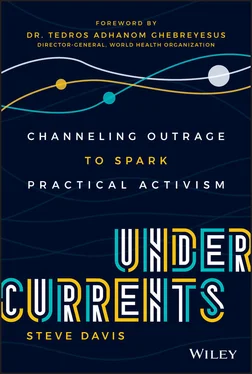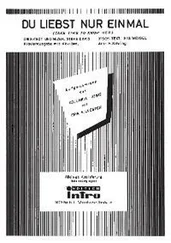Running parallel to this journey, a second powerful force was similarly shaping my sense of identity. After graduating from college, unsure of what to do with my degree in religious studies, I spent a year teaching in central Taiwan and became enamored of all things Chinese. It was a complicated love since I was intimidated by the language and unnerved by the authoritarian political regime, while mesmerized by the country's complex history and culture. I learned the language, savored its cuisine, found my first boyfriend, and built lifelong bonds in Taiwan and China. Despite my disagreement with some of China's political positions, particularly around human rights, I've been a Sinophile ever since.
These two social forces—the ascendance of China and momentum around gay rights—took root then, during the late 1970s and early 1980s, and became powerful undercurrents that would propel my life and career for four decades. Not that I had the prescience to predict their world‐changing power at the time. Rather, I followed those currents because they spoke to my intellectual curiosity, appetite for challenge, and determination to be true to myself. Much of the momentum came from the sheer luck of being in the right place at the right time. But I did begin to recognize that these two movements represented watershed moments in history. These undercurrents also connected me with extraordinary communities of social changemakers who further shaped my work in activism.
By late 1980, I was back home in the United States, expecting to live briefly in a friend's basement apartment in Seattle until I could return to Asia. Then I met Bob, the man I would eventually marry (when we were finally allowed to, decades later). I remember telling him about my experience in the Thai refugee camp, the dignity and determination of the teenage soccer player who'd lost his parents, the humiliation and disappointment of the Hmong man tripped up by a trick question posed by an immigration official. I could barely articulate the dimensions of my outrage and confusion. But Bob sensed them, and he suggested I channel those emotions to work helping other refugees and asylum seekers. So I decided to stay in Seattle and landed a job in refugee resettlement. For the next several years I used whatever skills I possessed, along with a lot of youthful enthusiasm and self‐righteous zeal, to help find funding, provide services, and boost community support for Southeast Asian, Cuban, and African newcomers to the Pacific Northwest. It was my first full‐time job as an activist. The pay was about $600 per month. I was far from the frontlines and removed from policy discussions in Geneva and Washington, DC. But I was learning the messy nuts and bolts of practical activism—finding homes for families, signing up people for food stamps, processing applications for resettlement, and writing complaint letters about faulty programs and weak regulations. Most of all, this was where I began learning how to translate my outrage into longer‐term practical solutions and help others do the same.
I was still deeply interested in China, however, and a couple years later decided to pursue a master's degree in Chinese studies. Part of that program meant spending the summer of 1983 in China, in one of the first foreign student groups allowed to study there since the Cultural Revolution. We numbered about 40, all of us living together in a funky, old dorm at the edge of the Beijing University campus—a few Americans, a great guy from Japan who became my lifelong friend, a couple of Europeans, and about 20 North Koreans. Vestiges of the Cultural Revolution were still much in evidence, and they touched every part of our lives, including bleak cafeteria meals consisting of rice, cabbage, and eggplant—every single day. Many of us, accustomed to lots more protein, felt like we were starving.
Oddly, being a foreigner afforded me certain freedoms that ordinary Chinese could not enjoy, one of which was access to the few international hotels. Consequently, I regularly hopped the fence with my buddy from Japan, Seido—partly for joyriding on our cool Phoenix bicycles down the grand boulevards, partly to forage for protein. Together, we cruised through old neighborhoods and along mostly carless streets to one of the few tourist hotels in Beijing, heading straight to the bar—more for the peanuts than the beer. They were protein, after all, and we'd stealthily stuff our pockets, later presenting this bounty to our hungry colleagues back at the dorms, where we spread our loot across the beds like kids assessing Halloween candies. While I've never considered myself a rule‐breaker, I was, even then, a problem‐solver. And I've always enjoyed figuring out creative ways to get stuff done for my team.
After returning to the States, I changed course again: rather than seeking a doctorate in Chinese politics and an academic career, I doubled down on building my toolkit for social justice work and pivoted toward legal studies. An unusual dual‐focus program at Columbia University would combine my interests in international human rights and Chinese law, so, with more than a bit of hand‐wringing, Bob agreed to sell his construction business and move across the country with me for a new adventure. This was 10 years after the Stonewall demonstrations, and we envisioned ourselves heading toward some sort of gay Mecca where we'd be surrounded by like‐minded activist couples while I pursued my degree. At least, that was the plan.
New York, however, turned out to be different than we'd anticipated. Despite the city's reputation for wild liberalism, its gay community in the mid‐1980s remained ghettoized. Of the few gay students in my law classes, most were deeply closeted due to fears that being “out” might dash their prospects at the Wall Street firms where they hoped to work. Bob and I, meanwhile, had applied for married student housing. (By then, we'd been together for five years.) When we learned we “didn't qualify,” I found myself arguing with the law school dean on my very first day. He was a highly regarded constitutional lawyer but informed me that making the case for a male couple to get into married student housing would be “way too awkward” for the women in the campus housing office. Bob and I were packed off to a tiny room facing an air shaft, where we had to pull out our futon bed each night and roll it up again every morning. This went on for three years. Add in the everyday challenges of being an openly gay couple in the 1980s—when anti‐homosexual discrimination in housing, employment, healthcare, and military service were rife—and my sense of injustice was beginning to boil. Then came AIDS.
It is difficult to capture the swirl of terror and outrage I felt as this disease moved from a media story to a force claiming my classmates and acquaintances, one by one, particularly after Bob and I returned to Seattle after graduation. We became caretakers for dying friends, attended funerals of men in the prime of their lives, and lived in abject terror of the virus. I suddenly found myself—a studious kid from a conservative community—at street protests and gay rights parades. Marching channeled my rage, but it left me frustrated. Protesting was necessary but insufficient to produce the tangible outcomes, like funding for AIDS research or changes to insurance laws, that would improve the well‐being of our community.
This was the moment I began to appreciate the important difference between frontline demonstrations and deeper reform. It was also the dawning of my realization of the power in behind‐the‐scenes practical activism. Let me be clear: I am profoundly grateful that there were, and still are, people driven to speak up loudly for change. Even when strident or off‐putting (like the ACT‐UP protests at St. Patrick's Cathedral in New York in 1989), public actions garner the attention of media and influencers, which is essential for pushing an issue onto broader public consciousness and, eventually, the agenda of policymakers. Indeed, considering the many harmful policies and the extraordinary affronts to our democratic systems today, I believe much more of this vocal activism is necessary to have any hope of leaving a better world to our children. Every tool matters, from advocacy efforts, to street marches, to effective social media campaigns (beyond merely sharing our outrage by “liking” a headline on Facebook).
Читать дальше












